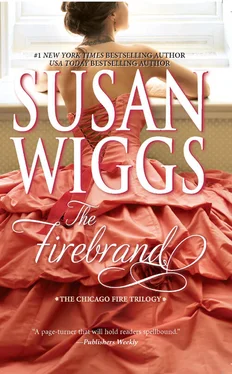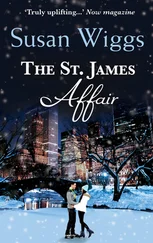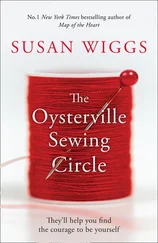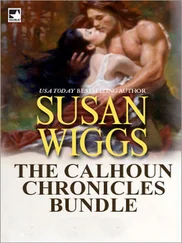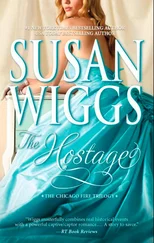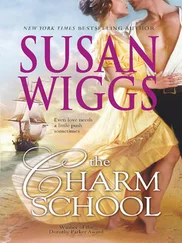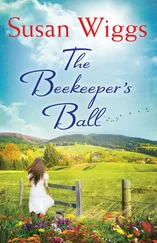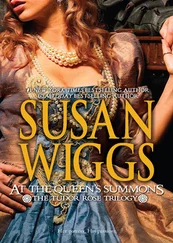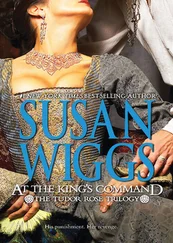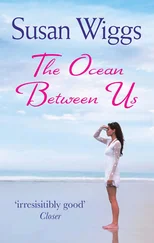Praise for the novels of Susan Wiggs
“Susan Wiggs paints the details of human relationships with the finesse of a master.”
—Jodi Picoult, New York Times bestselling author
“Fans of historical romances will naturally flock to this skillfully executed trilogy.”
— Publishers Weekly on the Chicago Fire Trilogy
“Wiggs provides a delicious story for us to savor.”
— Oakland Press on The Mistress
“Susan Wiggs delves deeply into her characters’
hearts and motivations to touch our own.”
— RT Book Reviews on The Mistress
“Once more, Ms. Wiggs demonstrates her ability
to bring readers a story to savor that has them
impatiently awaiting each new novel.”
— RT Book Reviews on The Hostage
“Wiggs is one of our best observers
of stories of the heart. Maybe that is because
she knows how to capture emotion on
virtually every page of every book.”
— Salem Statesman-Journal
“Susan Wiggs is a rare talent!
Boisterous, passionate, exciting!”
— Literary Times
“Susan Wiggs writes with bright assurance,
humor and compassion.”
—Luanne Rice, New York Times bestselling author
The Firebrand
The Chicago Fire Trilogy
Susan Wiggs
www.mirabooks.co.uk
Contemporary Romances
HOME BEFORE DARK
THE OCEAN BETWEEN US
SUMMER BY THE SEA
TABLE FOR FIVE
LAKESIDE COTTAGE
JUST BREATHE
The Lakeshore Chronicles
SUMMER AT WILLOW LAKE
THE WINTER LODGE
DOCKSIDE
SNOWFALL AT WILLOW LAKE
FIRESIDE
LAKESHORE CHRISTMAS
THE SUMMER HIDEAWAY
Historical Romances
THE LIGHTKEEPER
THE DRIFTER
The Tudor Rose Trilogy
AT THE KING’S COMMAND
THE MAIDEN’S HAND
AT THE QUEEN’S SUMMONS
Chicago Fire Trilogy
THE HOSTAGE
THE MISTRESS
THE FIREBRAND
Calhoun Chronicles
THE CHARM SCHOOL
THE HORSEMASTER’S DAUGHTER
HALFWAY TO HEAVEN
ENCHANTED AFTERNOON
A SUMMER AFFAIR
I have a great desire to see a variety of employments
thrown open to women, and if they may
sell anything, why not books? The business
seems to partake of the dignity of literature.
—Miss Elizabeth Peabody, Boston bookseller, 1848
This is for booksellers everywhere,
including Tamra, Beth Anne, Donita, Dean,
Jennie, Terry, Gerald, Michael, Mary Gay, donNA,
Donna, Sally, Lucinda, Marge, Rose Marie, Lois,
DeeDee, Stefanie, Ruth Ann, Tanzey, Judy, Judy,
Kyle, Charlie, Elaine, Char, Mary, Sharon, Virginia,
Anne Marie, Leah, Yvonne, Tommy, Bobbie,
Tina, Mark, Maureen, Cathy, Kathy, Rose, Dawn,
Bronwyn. And of course, Fran at the Safeway.
You enrich the lives of readers beyond measure.
Thanks to Barb, Joyce and Betty
for knowing what’s right and finding what’s wrong,
to Martha Keenan for her expert editing
and to the Chicago Historical Society
for keeping bygone days alive.
I suppose I need hardly say that I like Chicago—like it in spite of lake-wind sharpness and prairie flatness, damp tunnels, swinging bridges, hard water, and easy divorces.
—Sara Jane Clarke Lippincott (aka Grace Greenwood), 1871
Chicago
Sunday, 8 October 1871
The city was like a matchstick, waiting to be struck. The shipyards were stacked with lumber from the north woods, soon to be transformed into warehouses, tenements, breweries and shanties. In just a few short years, the prairie town had sprawled into an ungainly maze of wooden structures.
Many of the buildings looked grand. Some even appeared rock-solid. But in fact, most structures were clad in the false and fancy dress of ornate facades. Their insincere faces were painted to resemble stone or marble, copper or tin. But scratch beneath the surface, and the flimsy substance would be revealed—wood, as dry as tinder, capped by a deceptive veil of shingles glued on by flammable tar.
The roadways radiated like arteries from the giant, churning heart of the lake. Six hundred miles of wooden sidewalks and sixty miles of pine-block roadways spread through the business district and working-class neighborhoods where immigrant mothers tried to hush their fretful children, suffering in the unseasonably dry heat. Rickety boardwalks and causeways spread across manufacturing centers and even dared to encroach upon the fashionable wealthy areas north of the river.
The barons of industry and commerce had put up varnish factories, alcohol distilleries, coalyards, lumber mills and gasworks with more regard for fast profit than for fire prevention. They lived for show, in houses built to resemble the centuries-old manors of aristocrats. Blooded coach horses occupied stables crammed with dry straw and timothy hay. Avenues of trees, stripped dry by the summer-long drought, connected neighbor to neighbor, each trying to outdo the other in ostentation. Those who had established themselves in the city a mere fifteen years ago liked to call themselves Old Settlers, and the new arrivals had no grounds to challenge the designation. Instead they set to work earning their own fortunes so that one day they might buy their way into the ranks of the merchant princes.
Many of these newcomers stayed at the Sterling House Hotel, which was considered the very height of fashion. Literally. Crowned by a dome of colored glass, the five-story structure boasted a steam elevator and commanded an impressive view of the river.
Feverish and impatient with ambition, no one cared that Sunday was supposed to be a day of rest and reflection. No one heeded the fire alarms that had been shrieking through drought-choked neighborhoods all week. The wheels of commerce ground on with dogged relentlessness, and only those too timid to dream greatly would pause to worry that Chicago was a city built of tinder; or that sparks from a hundred thousand chimneys infested the gusting night air; or that the fire-fighting companies had already worked themselves into exhaustion.
To be sure, no one could have predicted the vicious speed with which the fire took hold. No one could have imagined that, with such a modern system of alarms and waterworks, the Great Fire would burn without interruption Sunday night, and on through Monday, and deep into the middle of Tuesday. No one looking at the falsely solid brickfronts could have believed the city would be so vulnerable.
But like anything built on an unstable foundation, the city had only the thinnest of defenses. Chicago was not long for this world.
We hold these truths to be self-evident; that all men are created equal; that they are endowed by their Creator with certain inalienable rights; that among these are life, liberty, and the pursuit of happiness.
—Thomas Jefferson “Declaration of Independence,” 1776
We hold these truths to be self-evident; that all men and women are created equal; that they are endowed by their Creator with certain inalienable rights; that among these are life, liberty, and the pursuit of happiness.
—Elizabeth Cady Stanton “Declaration of Sentiments,” 1848
Lucy Hathaway perched on the edge of her seat, pretending to hang on every word spoken by the evangelist. Anyone in the crowded salon who saw her attentive posture would admire her piety. Observers would find the sight of the dark-haired young woman, with her hands clasped in religious fervor, uplifting. Inspirational, even. Commendable, most assuredly.
Читать дальше
